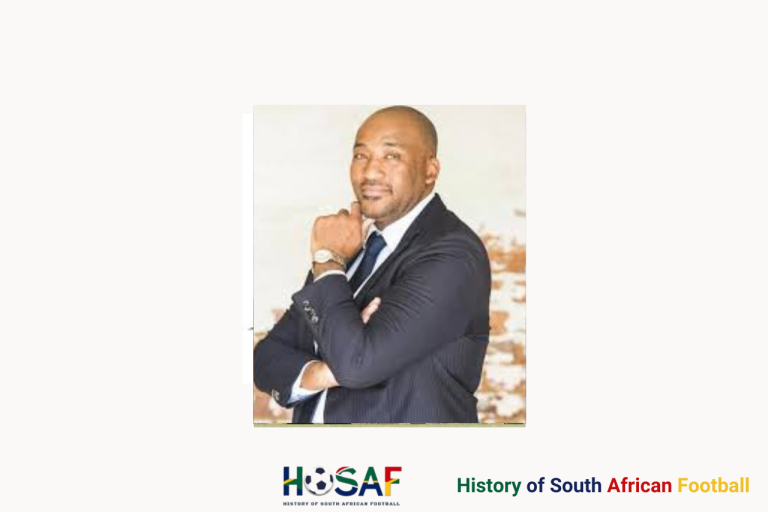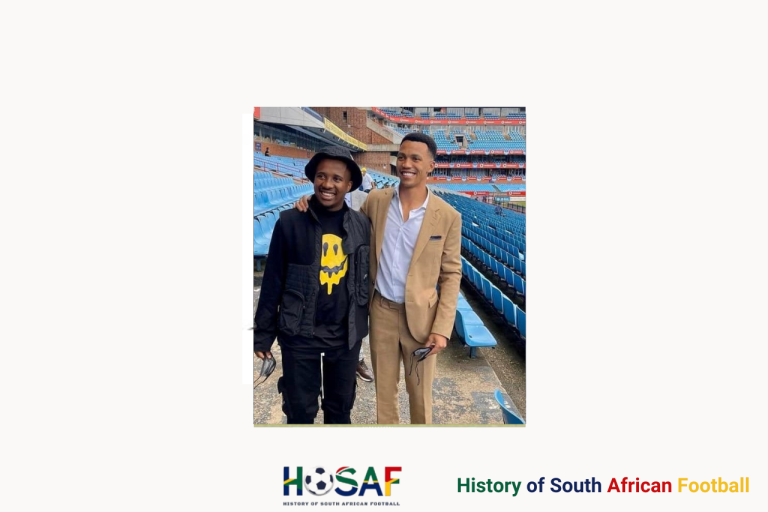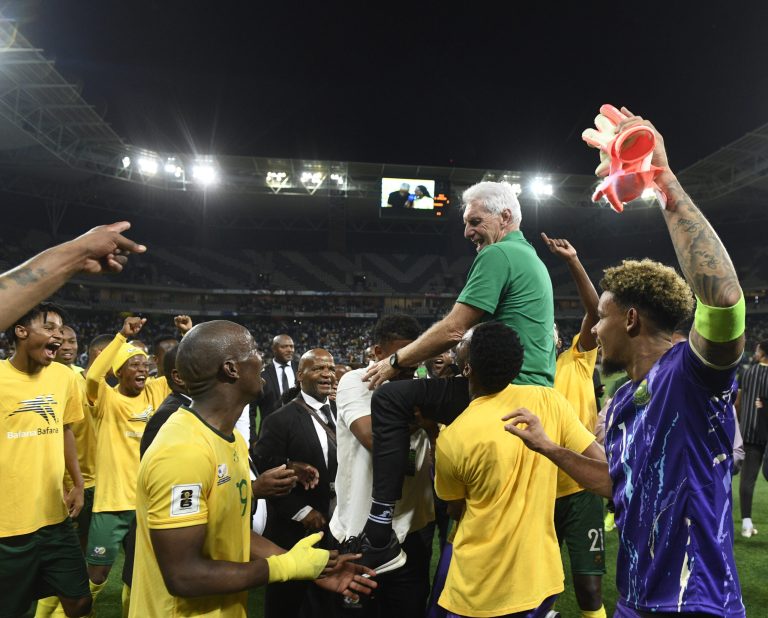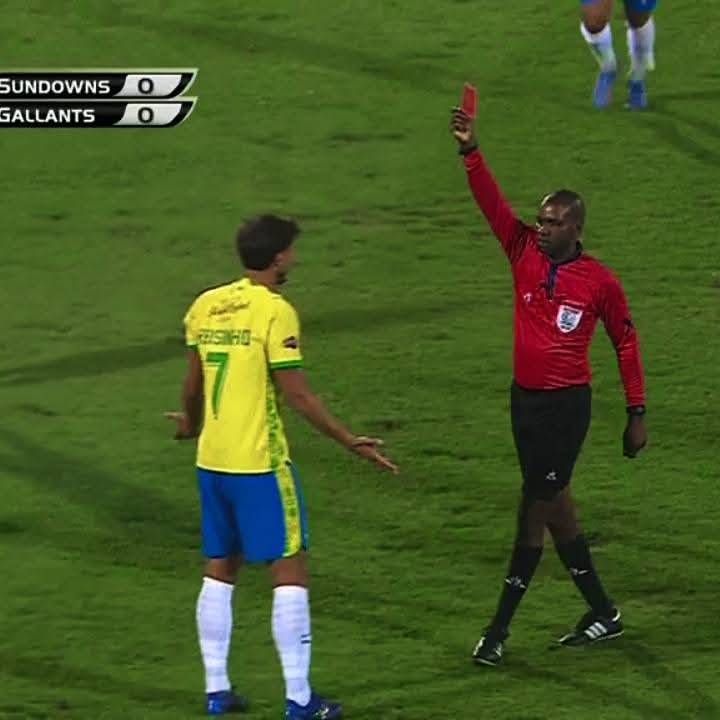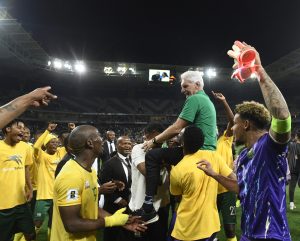Ria Stars Football Club, affectionately known as Manyora, was more than just a football team — it was Limpopo’s dream realized. Born in Polokwane in 1989 and owned by trailblazing businesswoman Ria Ledwaba, the club became a rare force from rural South Africa to grace the PSL. But their legacy would be shaped not by glory or relegation — but by a boardroom decision in 2002, when they became one of only two clubs in South African history to be bought out by the league and dissolved. A tale of talent, politics, and passion, Ria Stars is the club that vanished — but never disappeared from memory.
🟨 SECTION 2: Club Overview
Quick Facts About Ria Stars FC
| Attribute | Details |
|---|---|
| Full Name | Ria Stars Football Club |
| Nickname | Manyora |
| Founded | 1989 |
| Dissolved | 2002 |
| Location | Polokwane |
| Stadiums | Old Peter Mokaba Stadium / Seshego Stadium |
| Colors | Blue, White & Yellow |
| Owner Director | Ria Ledwaba Sello Chicco Thwala |
| Final Coach | Styles Phumo |
| Last PSL Season | 2001–2002 (Finished 12th of 18) |
| Status | Defunct – PSL Buyout |
🟨 SECTION 3: Rise to the PSL
A Limpopo Team with Big Aspirations
Founded by Ria Ledwaba in 1989, Ria Stars worked their way up from Caltex U19, Smirnoff League, regional 2nd divisions, and First Division — building a true grassroots-to-PSL story. By 1999–2000, they topped the NSL First Division Inland Stream and gained promotion to the Premier Soccer League (PSL). In their debut PSL season (2000–01), Ria Stars stunned everyone by finishing 7th, even qualifying for the BP Top 8.
🟨 SECTION 4: The Shock Exit
Bought Out by the League – The 2002 Decision
- 2002: The PSL had 18 teams and wanted to reduce to 16 to lessen fixture congestion.
- Ria Stars and Free State Stars were offered R8 million each by the league to sell their status.
- Ria Stars accepted — not due to performance but due to high operating costs and a bloated wage bill.
- They were 12th on the table when the deal was struck — mid-table, not struggling.
- With the stroke of a pen, Ria Stars ceased to exist.
- This remains one of the most controversial moves in South African football history. A competitive team wasn’t relegated or bankrupt — it was deleted, simply to manage fixture congestion. Many fans and players were stunned.
🟨 SECTION 5: Notable Players and Coaches
Coaches:
- Styles Phumo (final coach)
- Kenny Ndlazi
- Zoran Pešić
- Jacob Sakala
- Shane McGregor
- Shepherd Murape
- Malombo Lechaba
Players:
- Teko Modise
- Lucky Lekgwathi
- Elasto Lungu Kapowezha
- Joel Seroba
- Sidney Moshikaro
- Thapelo Liau
- Thembinkosi Biyela
- Frank Makua
- Thabang Lebese
- Saul Molapo
🟨 SECTION 6: Fan Culture and Style of Play
The Flair of the Forgotten
Fans remember Ria Stars not just for their rise — but for how they played. With silky midfielders, tricksters on the wing, and flamboyant celebrations, Manyora lit up stadiums. Matches at Old Peter Mokaba or Seshego were filled with singing, dancing, and youthful joy. They were a football romantic’s dream — unpredictable, cheeky, and passionate.
🟨 SECTION 7: Controversy and Liquidation Drama
Behind the Scenes: The R44 Million Claim
In 2002, businessman Matiki Chikala claimed to own 24% of Ria Stars, saying his investment had grown from R400,000 to R44 million after promotion. He sought liquidation of the club to recoup “owed” funds. Ria Ledwaba and her legal team vehemently denied the claim, calling it false and defamatory. This further marred the final days of the club, adding legal drama to their sudden exit.
🟨 SECTION 8: Why Ria Stars Still Matter
Gone, But Never Erased
- Their story is a case study in PSL economics and politics
- Inspired Limpopo’s youth and put Polokwane on the football map
🟨 SECTION 9: Remembering Manyora
The Club That Was Bought Away
“We didn’t get relegated. We didn’t go bankrupt. We just… stopped existing.”
– Former Ria Stars Fan, Polokwane
Ria Stars weren’t just a football team — they were the heartbeat of Limpopo’s football dream. In just two seasons, they dazzled, danced, and gave fans a sense of belonging. Then, with a cheque, it was all gone. But in Polokwane, in dusty fields and tavern debates, the name Manyora still brings a smile. Their legacy is not lost — it lives in memory, movement, and myth.



